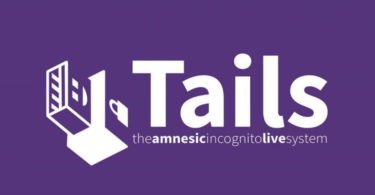Browsing system Tor enables journalists to anonymise their communications and may help access websites that are blocked on the local Internet. This article explains how Tor works and the benefits for journalists to use Tor in conjunction with a VPN (Virtual Private Network).
Governments, Internet Service Providers (ISPs), or other third parties may seek to track a journalist’s online activity, either for data collection to sell to advertisers, or surveillance. Journalists should protect their data online by using secure browsers such as the browsing system Tor.
An encrypted internet network. Tor is an internet browsing system that enables journalists to anonymise their communications with sources and access online resources from locations where their internet activity may be tracked or blocked. The Tor browser, to access the Tor network, is a modified version of Firefox and is available for both desktop and mobile devices. Tor encrypts its users’ data when they send an email or access a website by scattering the information all over the Tor network before it returns to the “regular” Internet. This makes the connection between the sender and the recipient difficult to track.
The best tool for safeguarding anonymity. Tor only protects the information leaving its network but offers stronger anonymity, as it uses a decentralised process and is not registered to any company or country. On the contrary, VPNs (Virtual Private Networks) are connected to legally-registered companies, meaning that their security is subject to the laws of the country they are based in, and that data flows through a central server that can be targeted by third parties.
The perks of using Tor
- Secure communication. Journalists can communicate with colleagues and sources with greater anonymity due to automatic data encryption.
- Anonymous browsing. Websites accessed through Tor are not immediately visible to ISPs and other third parties.
- Open uncensored web. The Tor network enables access to onion sites, websites that route their Internet traffic over the Tor network. Onion sites are not accessible through web browsers like Chrome, Safari, or Firefox without Tor support. Commonly referred to as the “dark web,” some onion sites may contain content considered illegal in some jurisdictions. To support freedom of speech and user privacy, several media organisations have launched their own onion sites.
Limitations to keep in mind
- Do not assume Tor is entirely safe. As Tor is entirely decentralised, law enforcement agencies or malicious attackers may try to monitor or eavesdrop on users’ activity. You can read the Tor Project guidelines on how to safely use Tor.
- Use additional end-to-end encryption tools. Some online services and websites are not using secure connection, meaning data can still be intercepted and read by malicious Tor exit nodes. Tor Browser has https-only mode enabled by default, but some websites still do not support this option. Therefore, journalists should be careful when visiting a website without secure protocol (https).
- Check ISPs terms and conditions. Due to Tor’s association with the “dark web” and potential illegal activity on its network, many ISPs ban the use of Tor in their terms and conditions. Consequently, they may block them off from accessing it.








